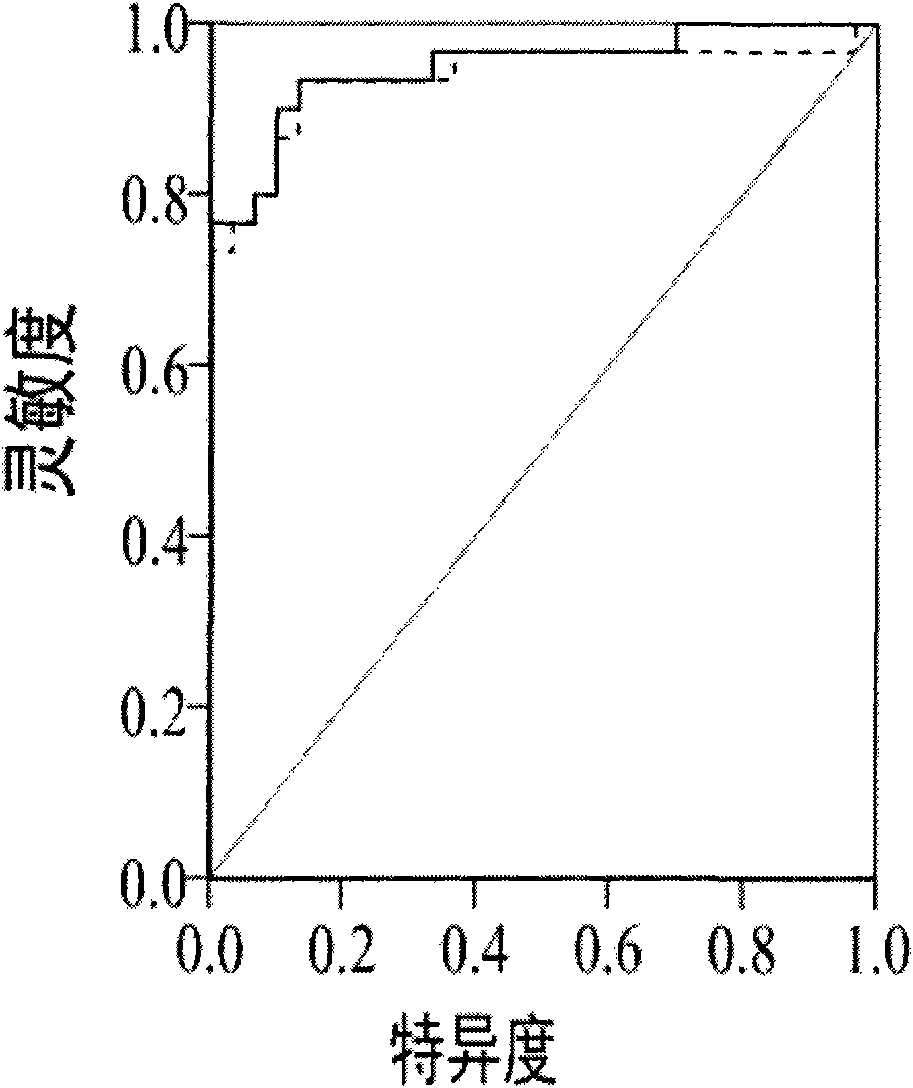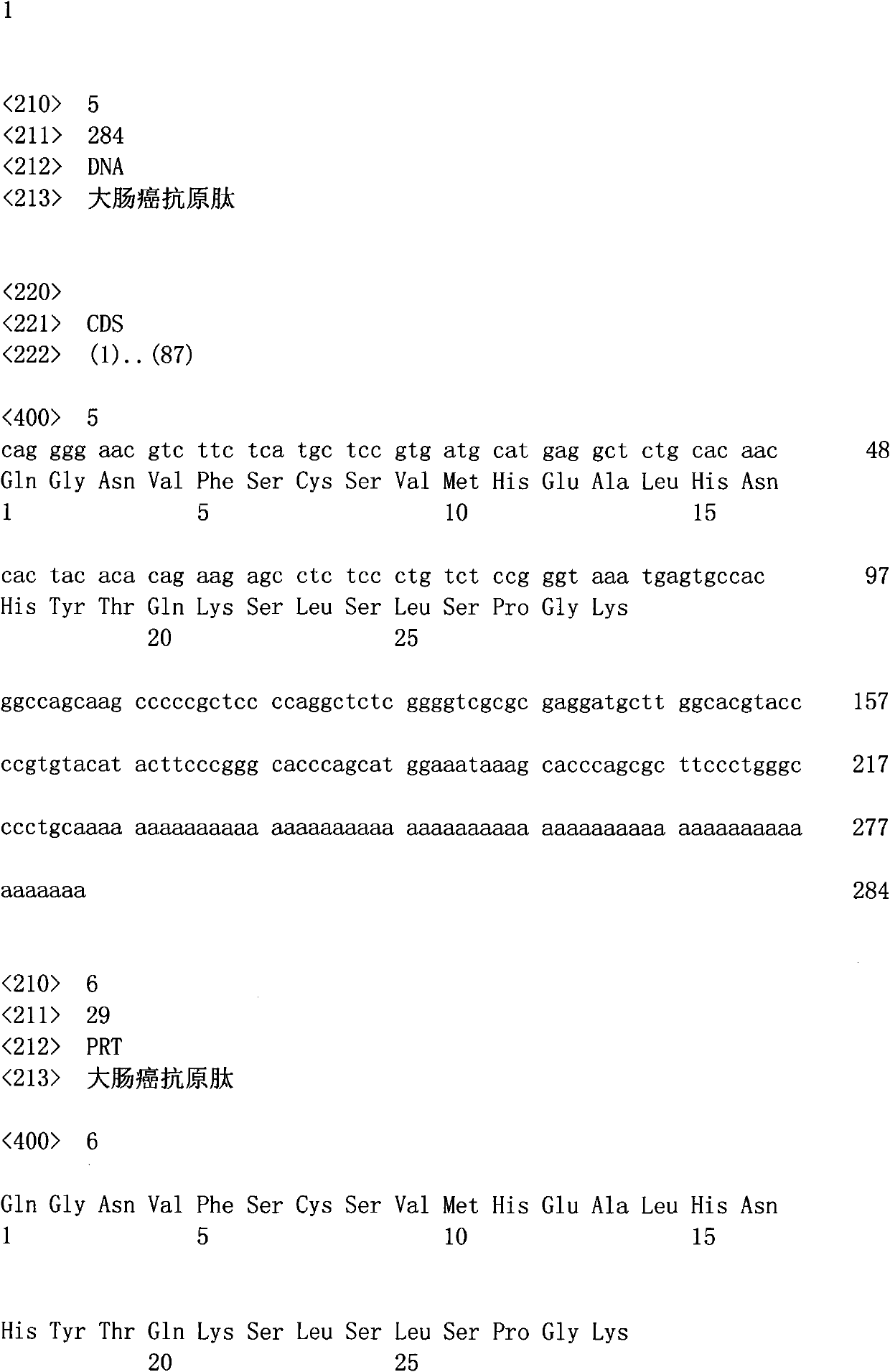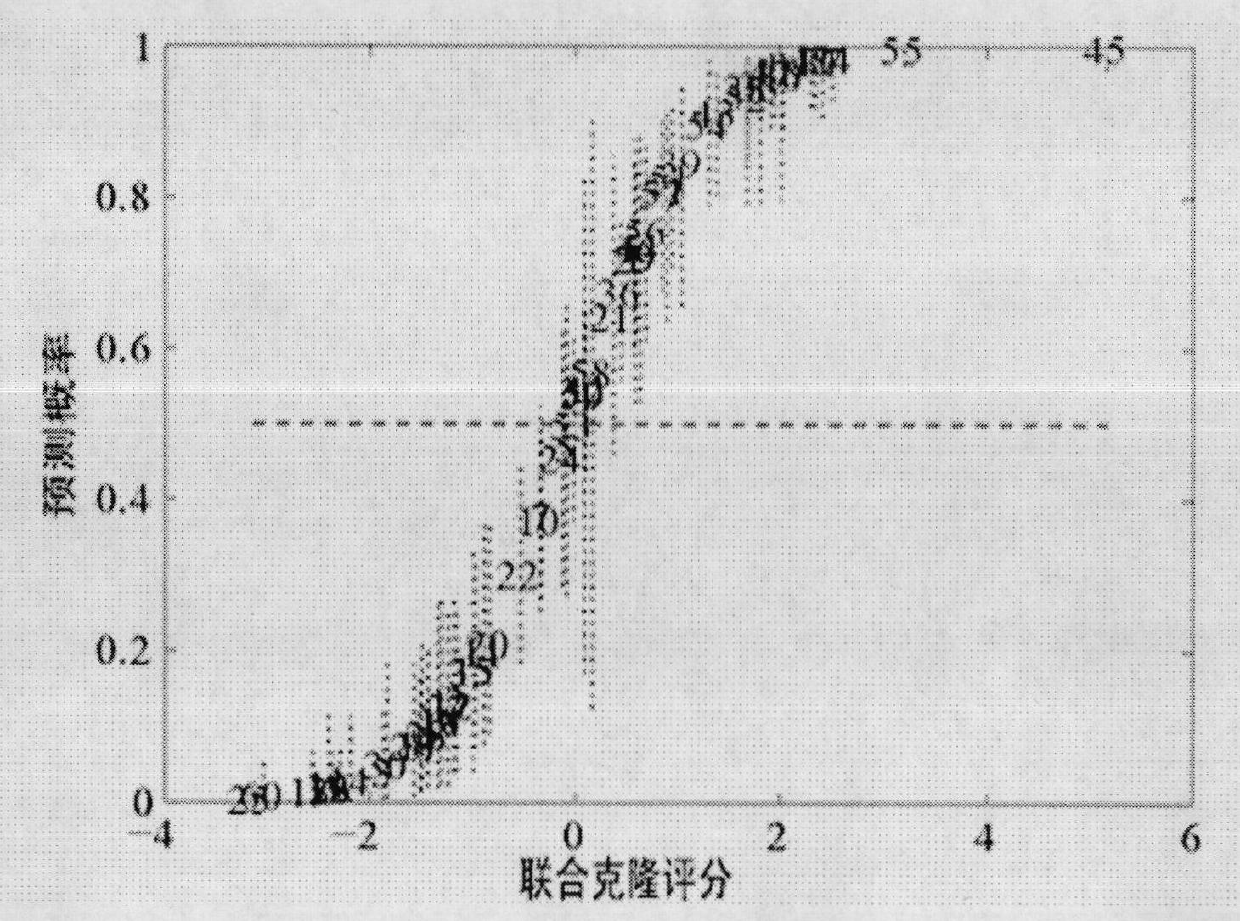Colon cancer specific antigenic peptide and colon cancer detection kit
A colorectal cancer-specific technology, applied in the field of colorectal cancer-specific autoantibody enzyme-linked immunosorbent assay kits, can solve the problems of lack of sensitivity and specificity, failure of early diagnosis of colorectal cancer, difficult acceptance by patients, etc., and achieve high sensitivity and high specificity
- Summary
- Abstract
- Description
- Claims
- Application Information
AI Technical Summary
Problems solved by technology
Method used
Image
Examples
Embodiment 1
[0043] Example 1 Construction of colorectal cancer phage display peptide library
[0044] Extract total RNA from 30 fresh colorectal cancer tissues, mix the same amount into 1 mg, and extract mRNA. Use oligodT primers to reverse transcribed into cDNA. The ends of cDNA are flushed, and EcolⅠ and Hind Ⅲ linkers are added. The fragments are then connected to the arms of T7 phage (NOVAGEN) and packaged in vitro to construct a colorectal cancer phage display peptide library. The optical picture is as follows figure 1 Shown. Determine the capacity of the constructed phage display peptide library to be 3.0×10 6 pfu, the recombination rate is 60%, which meets the requirements of the late screening test.
Embodiment 2
[0045] Example 2 Affinity screening of colorectal cancer specific antigen peptides
[0046] Take 10μl of A / G agarose beads and place them in a 1.5ml centrifuge tube, wash twice with 500μl PBS (pH7.4), and block with 1% BSA at 4°C for 1h. The agarose beads were incubated with 15μl of colorectal cancer patients and control patients' serum at 4°C overnight. The control patients were defined to exclude any malignant tumors and precancerous lesions, as well as patients with adenomatous polyposis and hereditary non-polyposis colorectal cancer. After washing with 500μl of PBS for 3 times, the enriched antibody was dissolved with 10μl of PBS. 10 tubes of colorectal cancer antibodies and 10 tubes of non-colorectal cancer antibodies are each combined into one tube. Take 20μl of the phage library amplification solution and incubate it with 20μl of non-colorectal cancer antibody for 1h. The unbound supernatant is then combined with 20μl of colorectal cancer antibody. The phage bound to the ...
Embodiment 3
[0047] Example 3 Serological screening of molecular markers for early detection of colorectal cancer
[0048] 3.1 Preliminary screening of mixed blood samples
[0049] The selected peptide library uses LB liquid medium 1:10 8 After dilution, take 100μl of phage solution, 250μl of freshly shaken BLT5403 bacteria, 3ml of top agar insulated at 55°C, and immediately pour it into a plate covered with LB after mixing. After cooling, incubate in a 37°C incubator for 4 hours. A single plaque is formed. Add 1ml of freshly shaken bacteria BLT5403 to each 1.5ml centrifuge tube. Use a sterile toothpick to randomly pick a single, clear-bounded phage into a 1.5ml centrifuge tube. A total of 2000 phage clones are randomly selected. Number in order. Place the selected phage in a constant temperature shaker at 37°C and shake for more than 4 hours until the liquid in each tube becomes clear. Store the selected phage at 4°C. Use T7 primers (synthesized by Shanghai Shenggong Biological Co., Ltd.) ...
PUM
 Login to View More
Login to View More Abstract
Description
Claims
Application Information
 Login to View More
Login to View More - Generate Ideas
- Intellectual Property
- Life Sciences
- Materials
- Tech Scout
- Unparalleled Data Quality
- Higher Quality Content
- 60% Fewer Hallucinations
Browse by: Latest US Patents, China's latest patents, Technical Efficacy Thesaurus, Application Domain, Technology Topic, Popular Technical Reports.
© 2025 PatSnap. All rights reserved.Legal|Privacy policy|Modern Slavery Act Transparency Statement|Sitemap|About US| Contact US: help@patsnap.com



